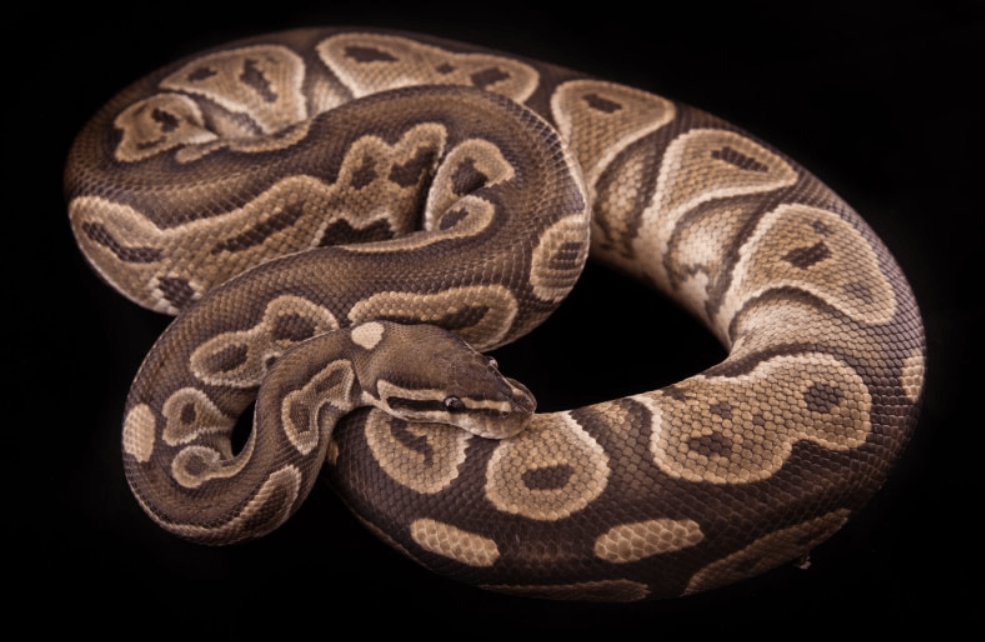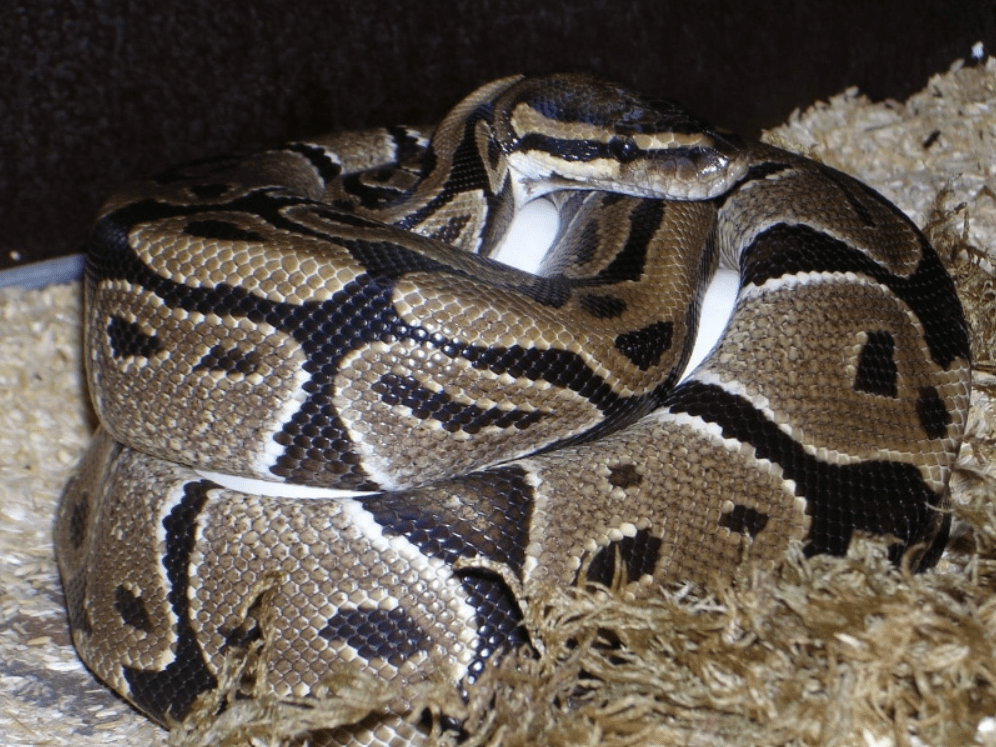For reptile caretakers who have prior knowledge of snakes Pythons are excellent companion snakes. They are interesting and inquisitive snakes that will develop long-term relationships with their owners. Cinnamon python morph is an amazing snake that has interesting colors and patterns. In captivity they are relatively easy to care for and keep healthy. Easy to handle and undemanding, the distinctive cinnamon morph was developed in 2002 in the reptile community. This color mutation is fast becoming a favorite. And people love the snake’s personality besides its color.
Table of Contents
Do Cinnamon Ball Pythons Make Good Pets?
certain! They are one of the easiest snakes to keep as a hobby. But keeping these snakes healthy requires a certain amount of skill. Pythons have a long lifespan and are very large. This also means that you will be responsible for it for more than thirty years. If their needs are met They would make excellent pet snakes. And you will be rewarded with a faithful scaly friend. Maintaining a healthy diet can take several hours a day. You should be ready to properly care for your snake and feed it the appropriate food for its age.
Cinnamon Ball Pythons Appearance

The underside of the unmarked cinnamon ball python is covered in a complex pattern of lighter colors alternating with dark brown. Adult ball pythons are usually between 4 and 5 feet long. However, they can be very large. They require large cages because they grow longer than other snake species. Cinnamon morphs have a unique lighter pattern that ranges from light brown to dark brown. An adult ball python can weigh between 3 and 6 pounds and have a body that is 2-3 inches thick.
How to Take Care of Cinnamon Ball Pythons
Habitat, Tank Conditions & Setup
Cinnamon Ball Pythons Tank
A python needs at least 40 gallons of space in a tank or terrarium. You can place young snakes in a tub or 20-gallon Rubbermaid tank. The cover needs to be adjusted because it makes it difficult to control the humidity in the habitat. Your ball python’s health may decline due to poor retention of heat and moisture in the mesh cover. To stop the growth of bacteria Habitats need to be cleaned and disinfected regularly. It is necessary to change the media and clean and rinse the water bowl.
Lighting
Basking spotlights are essential for pythons. It should also help the snake have a day and night cycle. Most lights have timers so they can turn on and off automatically at the right time.
Heating (Temperature & Humidity)
To keep your python ball at the right temperature The cabinet must have an adequate thermal gradient. A digital thermometer should be used to monitor the habitat. Maintaining the cool and warm sides of an ecosystem is very important. The cool side of the habitat should be between 75°F and 80°F, while the basking area should be between 90°F and 35°F. In fact, the humidity in the cage should be kept between 50% and 60%.
Substrate
Ball pythons grow well in cypress mulch and orchid stems as a substrate. This substrate retains moisture and humidity well. When talking about pythons Sawdust and layers should be avoided. Cedar and pine shavings contain phenols and oils that are harmful to reptiles.
Feeding Your Cinnamon Ball Python

Rodents should be given to your python once a week to relieve hunger. The bait should not be larger than the python’s circumference. Because the size of the rodent is very important. These snakes can be fed to rats from a young age. They are an excellent source of food. Baby pythons are suitable as pinkies or small mice within 24 hours of eating. Try not to handle the python as this may cause it to regurgitate. Live bait should not be left out during feeding as this may injure the snake. The night before feeding is the best time to thaw frozen food. Winter is a time when pythons lose their natural appetite. Therefore, they may skip meals.
Keeping Your Cinnamon Ball Python Healthy
Keeping your ball python healthy is easy. Make sure you offer your reptile a large area with lots of hiding places, trees, or caves. There should be no changes in temperature or humidity. They may suffer health effects from too much or too little humidity. You can accurately determine the humidity range in your habitat using a hygrometer, which is quite useful. If your snake is sick or in poor health You may also need to consult a reptile veterinarian.
Cinnamon Ball Pythons Lifespan
Pythons are long-lived. A healthy and properly cared for ball python can live 20 to 30 years. They often live up to 40 or 50 years in captivity. There are 60-year-old pythons among the line. Oldest known breed
Cinnamon Ball Pythons Breeding
Pythons should mate when they reach adulthood. This basically means that they have a lifespan of 2 years. Males can mate at a young age. Females must be over 2 years old and weigh at least 1,500 grams to breed. They breed continuously. The breeding season runs from September to November. Boas lay eggs, which need to be stored with appropriate materials. The female will lay four to six eggs. However, if the incubator temperature is not constant Some eggs may not hatch.
Are Ball Pythons Friendly? Our Handling Advice
Due to shy nature Pythons like to spend time in their habitat. Take a nap under a tree or other hiding place. or sunbathing The first time they saw you as a threat. It will attack or curl up into a ball to protect itself. If you raise a python at a young age They will eventually get used to you and feel comfortable with you. Boas must be handled with care. Avoid moving quickly or allowing more than one person to handle the snake at one time. Your snake will become more restless and hide.
Cinnamon Ball Pythons Price
The price of a cinnamon ball python morph typically ranges between $50 and $100. Prices vary depending on where you get your snake. This is because breeders tend to charge more. Although snakes benefit from this due to their better genetic potential. Or you can buy ball python eggs and hatch them yourself. It will cost you $20 to $60.